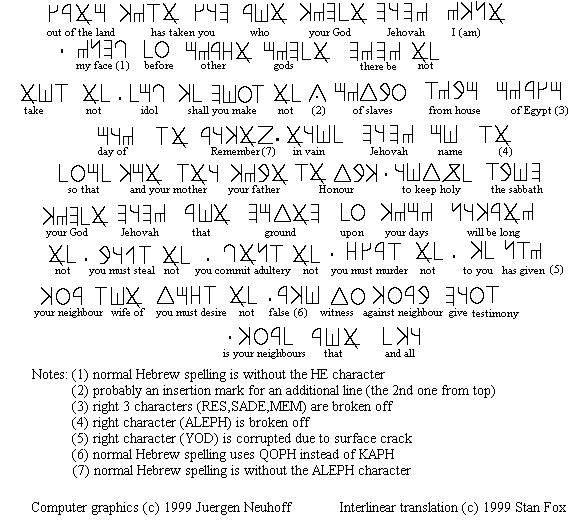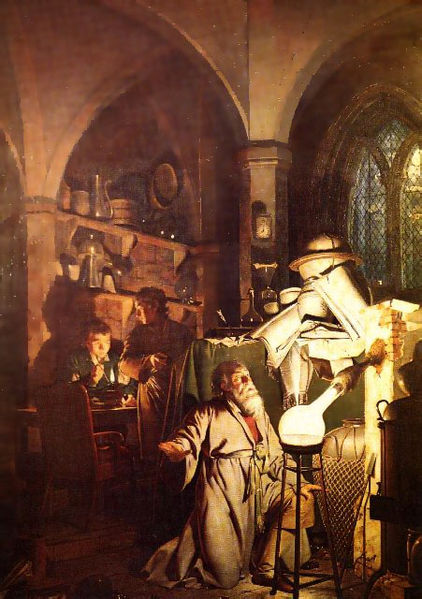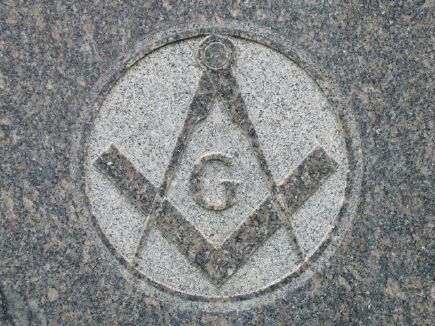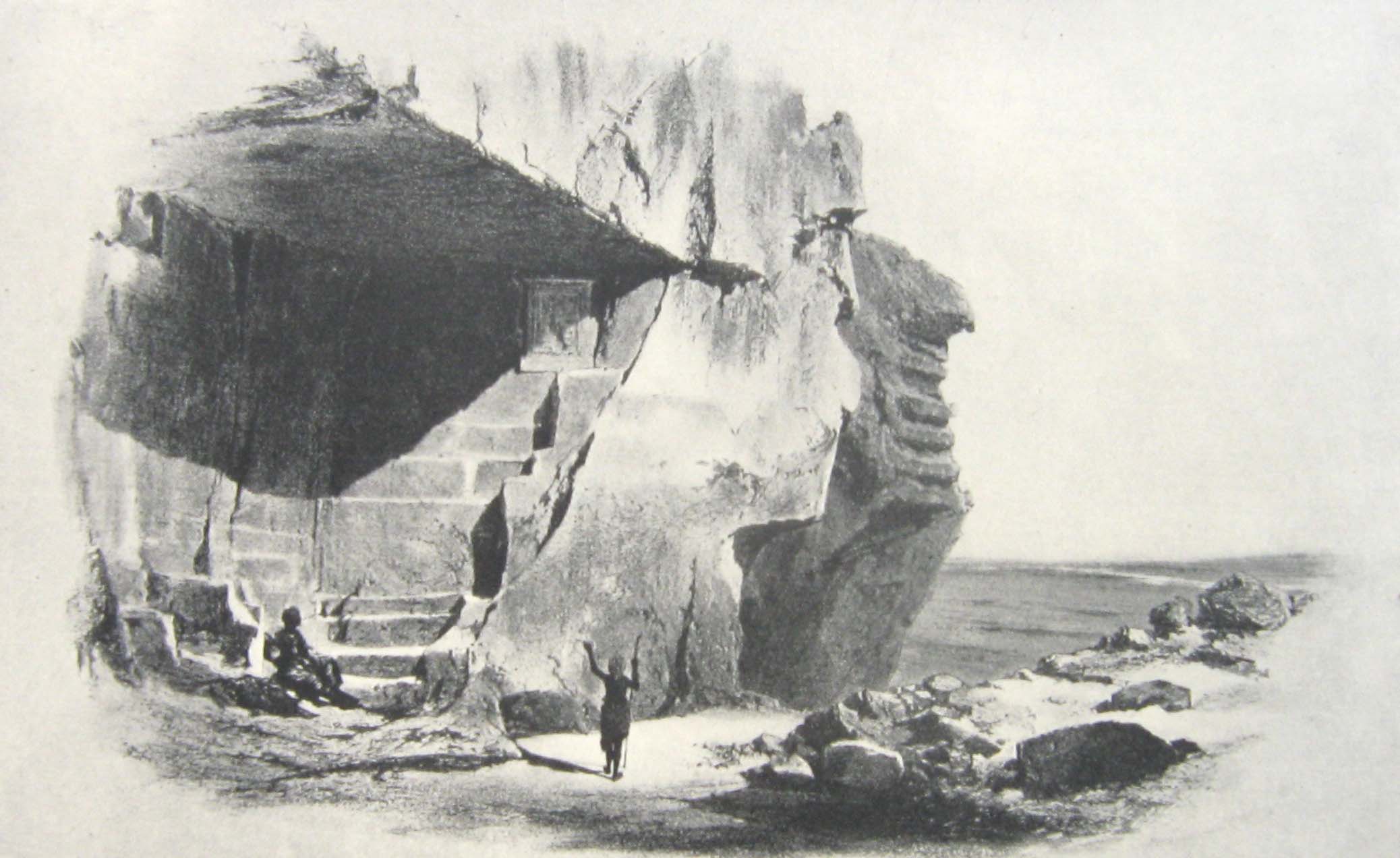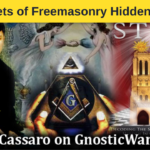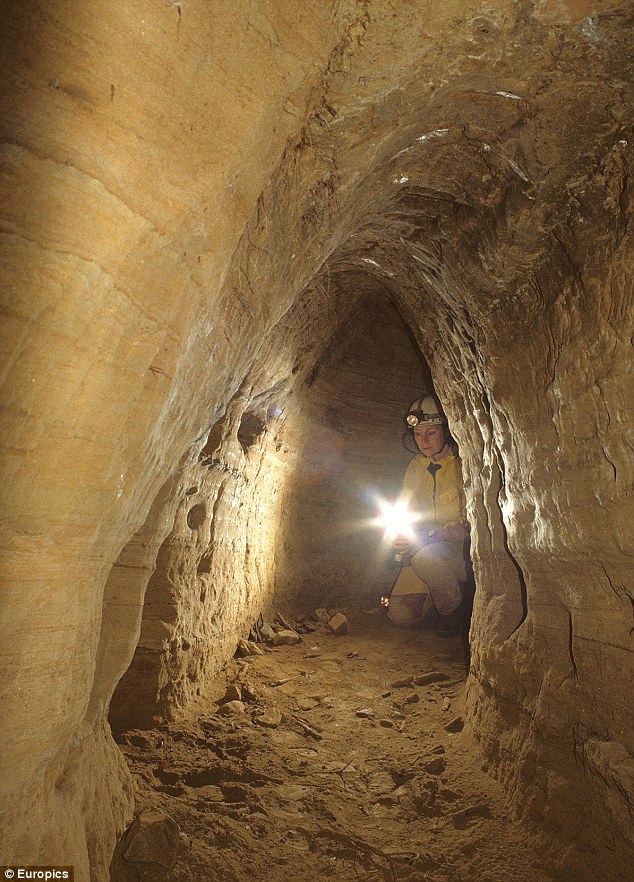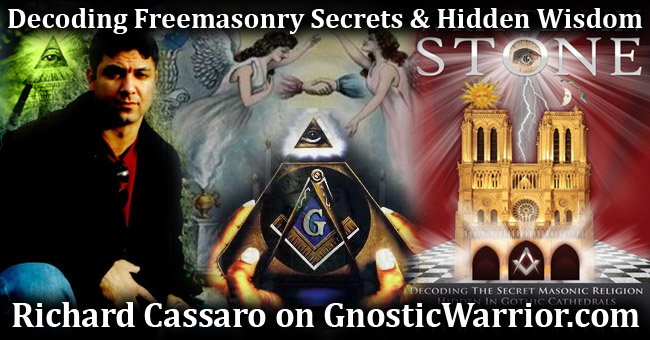In my last article, The American Indians and Phoenician Hebrews: Masonic Square and Compass, I had shared with you an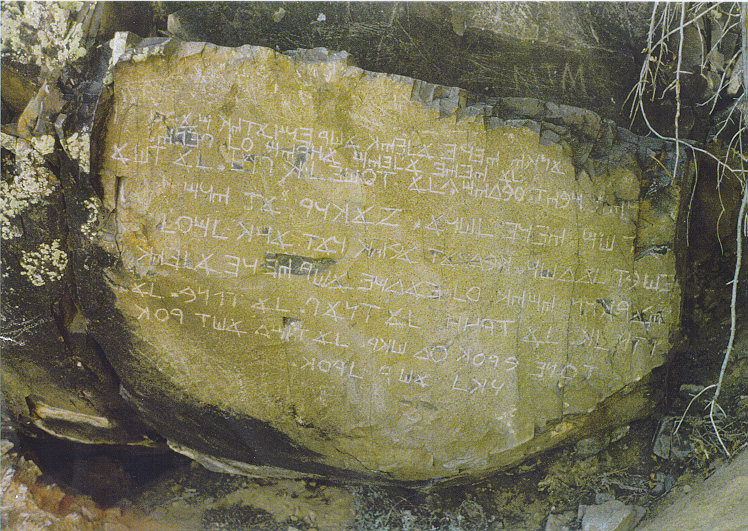 interesting artifact that seems to tie the Indians with the Phoenicians (Sea Peoples and Hebrews), and possibly the Freemasons.
interesting artifact that seems to tie the Indians with the Phoenicians (Sea Peoples and Hebrews), and possibly the Freemasons.
As I had mentioned in the article, the Indian Masonic Square and Compass was made of shells and found in Coolidge, Arizona at a place called the Casa Grande Ruins National Monument (O’odham: Siwañ Waʼa Ki:), just northeast of the city of Casa Grande, preserves a group of Ancient Pueblo Peoples Hohokam structures of the Pueblo III and Pueblo IV Eras.
Another ancient American Indian artifact was found here that I would like to share with you that helps support my American Indian and Hebrew connections that I have been making. It is an ancient massive stone that contains text in the form of Old Hebrew, and it also has an abbreviated version of the Ten Commandments written upon it.
It is not known for certain when the stone was first discovered, but was known by the locals as far back as the 1850’s. The script could not be read at this time and therefore undecipherable. It was not until the last century that experts were able to decipher the Hebrew text.
The stone is known as the Los Lunas Inscription, and is located on a 400 foot high mesa in Hidden Mountain, New Mexico, near Los Lunas, New Mexico, about 35 miles south of Albuquerque. The language of the text is clearly of Hebrew origins, with mixture of some Greek letters. This has been attested to by many archaeologists and experts over the years. See Cline (1982), Deal (1984), Stonebreaker (1982), Underwood (1982), and/or Neuhoff (1999) for transcriptions and translation, and Deal (1984).
The inscription uses Greek tau, zeta, delta, eta, and kappa (reversed) in place of their Hebrew counterparts taw, zayin, daleth, heth, and caph, indicating a Greek influence, as well as a post-Alexandrian date, despite the archaic form of aleph used. The letters yodh, qoph, and the flat-bottomed shin have a distinctively Samaritan form, suggesting that the inscription may be Samaritan in origin. See Lidzbarski (1902), Purvis (1968).
Cyrus Gordon (1995) proposes that the Los Lunas Decalogue is in fact a Samaritan mezuzah. The familiar Jewish mezuzah is a tiny scroll placed in a small container mounted by the entrance to a house. In 1996, Prof. James D. Tabor of the Dept. of Religious Studies, University of North Carolina – Charlotte, interviewed the late Professor Frank Hibben (1910-2002), a retired University of New Mexico archaeologist was convinced that the inscription is ancient and authentic. Hibbins said the first time he saw the text was in 1933.
A a professional geologist, George Moorehouse (1985), indicates that the weight at of the stone at approximately 80 to 100 tons, and says it has moved about 2/3 of the distance from the mesa top to the valley floor since it broke off. Moorehouse said the inscription is clearly many times older than this graffito, and that 500 to 2000 years would not be an unreasonable estimate of its age.(2.Written by J. Huston McCulloch )
Jeff A. Benner, of the Ancient Hebrew Research Center translates the text as the following:
1. ANKY YHWH ALHYK AShR HWTsATYK MA{??-RTs}
2. LA YHYH ALHYM AHhRYM GhL PHNY
(This line belongs after the next line but appears to have been inserted here after the completion of the writing)
3. {?-MTsRYM} WBYT GhBDYM ? LA TGhShH LK PSL . LA TShA
4. {?-A}T ShM YHWH LShWA . ZAKWR AT YWM
5. HShBT LQDShW KBD AT ABYK WAT AMK LMGh{L-N?}
6. ARK?? YMYK GhL HADMH AShR YHWH ALHYK
7. {??-NTN} LK LA TRTs{?-H} LA TNAP . LA TGNB . LA
8. TGhNH BRGhK GhD ShKR . LA {?-THh}MD AShT RGhK
9. WKL AShR LRGhK .
Translation:
1. i yhwh your god who brought you out from land of
2. no will be gods after over my face
3. egypt and house servants ? no you do to you ? . no you do
4. at name yhwh to vain . remember at day
5. the shabbat to holy him honor at your father and at your mother in order that
6. long ? your days over the ground which yhwh your god
7. give to you no you murder no you adultery no you steal no
8. you humble in your neighbor witness false . no you covet wife of your neighbor
9. and all which to your neighbor
Alternate Translation:
1. I am Yahweh your God who brought you out from the land
2. No gods before me
3. A house of servants ? do not do to you ? do not do
4. the name yhwh in vain . remember the day of
5. the sabbath to make it holy honor your father and your mother in order that
6. your days be long over the land which yhwh your God
7. gives to you do not murder do not commit adultery do not steal do not
8. humble your niehgbor a false witness . do not covet the wife of your neighbor
9. and all that belongs to your neighbor
SOURCES:
- Open source listed above and linked to in yellow
- Written by J. Huston McCulloch – http://www.econ.ohio-state.edu/jhm/arch/loslunas.html

Moe is the founder of GnosticWarrior.com. He is a father, husband, author, martial arts black belt, and an expert in Gnosticism, the occult, and esotericism.

